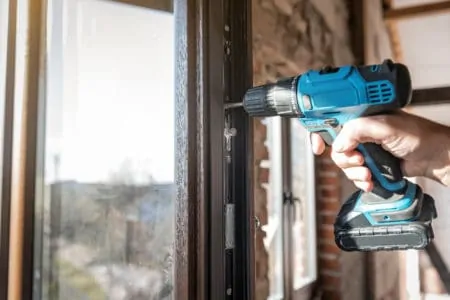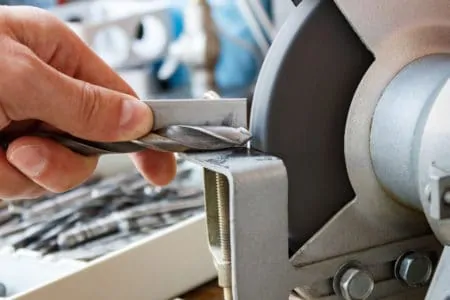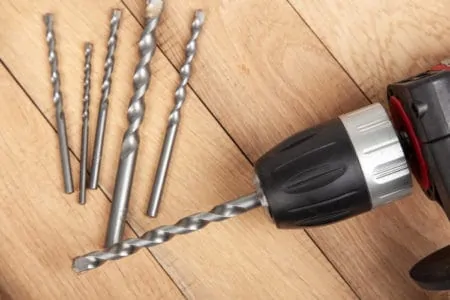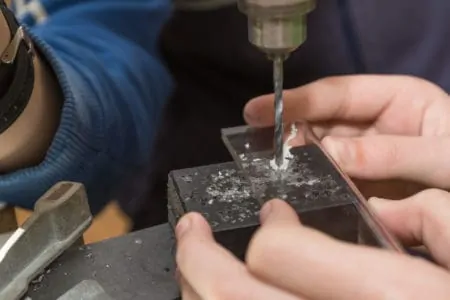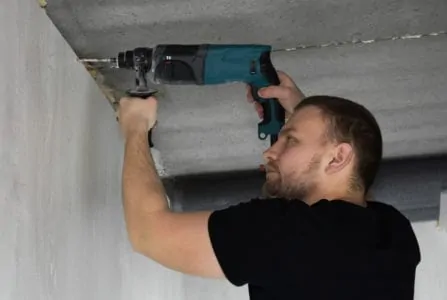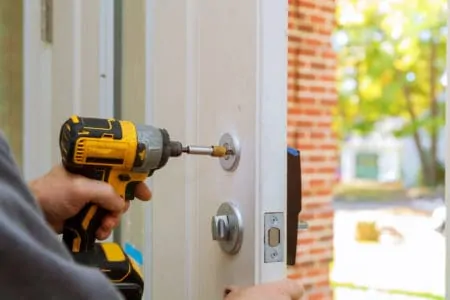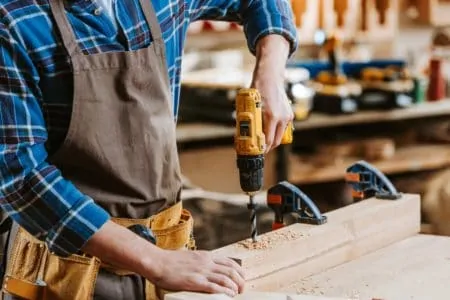A power drill is considered an essential part of a modern tool collection. They are versatile, reliable, and easy to use. The same can’t be said of screw guns, which are tools designed specifically to quickly and easily insert screws to a set depth.
Drills can also be used as effective electric screwdrivers with the right attachments. This might leave you wondering why you would need a screw gun at all, but they do have advantages that a drill lacks.
In this article, we will take a closer look at screw guns and power drills and why you might want to choose versatility or specialism. This should help you choose a winner in the screw gun vs drill debate.
Key Takeaways
- Screw guns are specialized tools for inserting screws, ideal for drywall installation, while drills are versatile tools for drilling holes and driving screws.
- Drills can be used as screw guns with a dimpler attachment, but they are slower and less precise than actual screw guns.
- Screw guns have an automatic screw-loading feature, whereas drills require manual loading of each screw.
- Both tools have their advantages, but for occasional screw insertion, a drill with a dimpler attachment may be more cost-effective than a screw gun.
Screw Guns vs Drills Comparison Chart
| Screw Gun | Drill | |
| Purpose | Fixing drywall and other light tasks | Drills most surfaces and materials |
| Features | Nose Clutch Depth setting Auto-feed Screw reel |
Variable speed Interchangeable drill bits Switch between hammer and drill Self-locking chuck Auxiliary handle |
| Functions | Depth accuracy of screws Speed Control No manual reload |
Acts as a screwdriver Can convert to fix drywall Hammer drill for stubborn materials Auxiliary handle increases control Makes any size hole |
What is a Screw Gun?
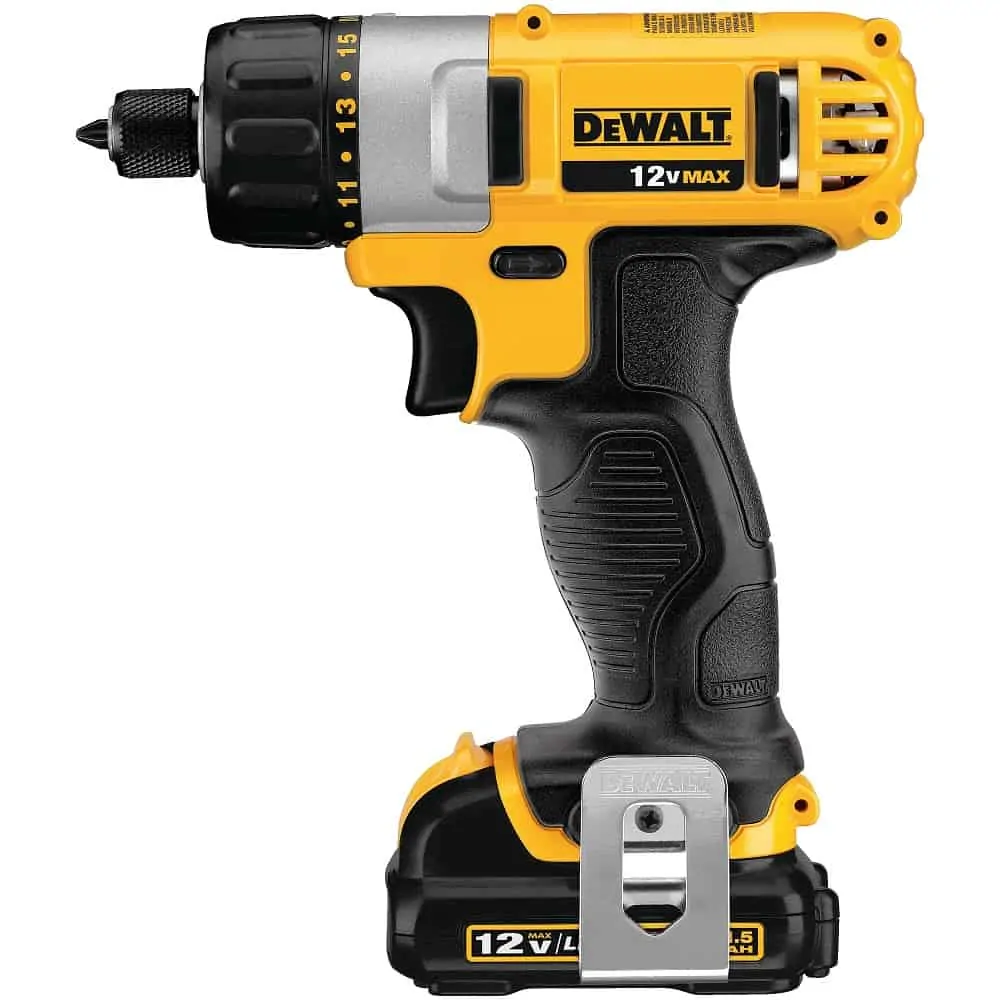
A screw gun is a specialist tool with limited uses. It looks like a drill and feels similar to use, but a screw gun has less torque than a drill to prevent screws from going too deep. This also makes them less versatile than drills.
Although they lack versatility, screw guns excel at driving screws. They allow you to set the depth you want the screw to go, which is particularly important when fitting drywall.
As drywall is relatively soft, there is always a risk of the head of a screw penetrating the surface and damaging it. This might not seem like a major problem but it will make it harder to achieve a smooth finish later.
Pick Up The Pace
Screw guns are far quicker thanks to innovations such as the screw reel, which loads a new screw automatically each time you use one, so you won’t have to do this manually.
Despite their advantages, their lack of versatility means screw guns are quite expensive for a single-use tool. If you only need to fit screws occasionally for small DIY tasks, a power drill with a screwdriver attachment should suffice. This makes them more popular with professionals than DIY enthusiasts.
How Does a Screw Gun Work?
A screw gun has three main components: a motor, a clutch, and a nose. The screws are housed in a clip, similar to that of a nail gun, and are fed through an auto-feed to ensure they don’t cause a blockage.
You will first need to set how deep you want the screw to go and then gently press the nose against the drywall. This engages the clutch, which activates the 3,500 RPM motor.
The screw will rotate and feed into the wall to the desired depth. Once that depth is reached, the clutch will disengage, stopping the motor.
What is a Screw Gun Used For?
Due to how quickly they can insert numerous screws, screw guns are used primarily for fixing drywall. They can also be used for some other tasks, such as fitting wooden decking and floorboards, but their low torque motors limit their versatility.
Pros
- Inserts thousands of screws quickly
- No need to reload after each screw
- Can set the screw depth
- The clutch engages from the nose
- Perfect for drywall
Cons
- Limited versatility
- Low torque motor
- Specialist tool
- Expensive for a single-purpose tool
What is a Drill?
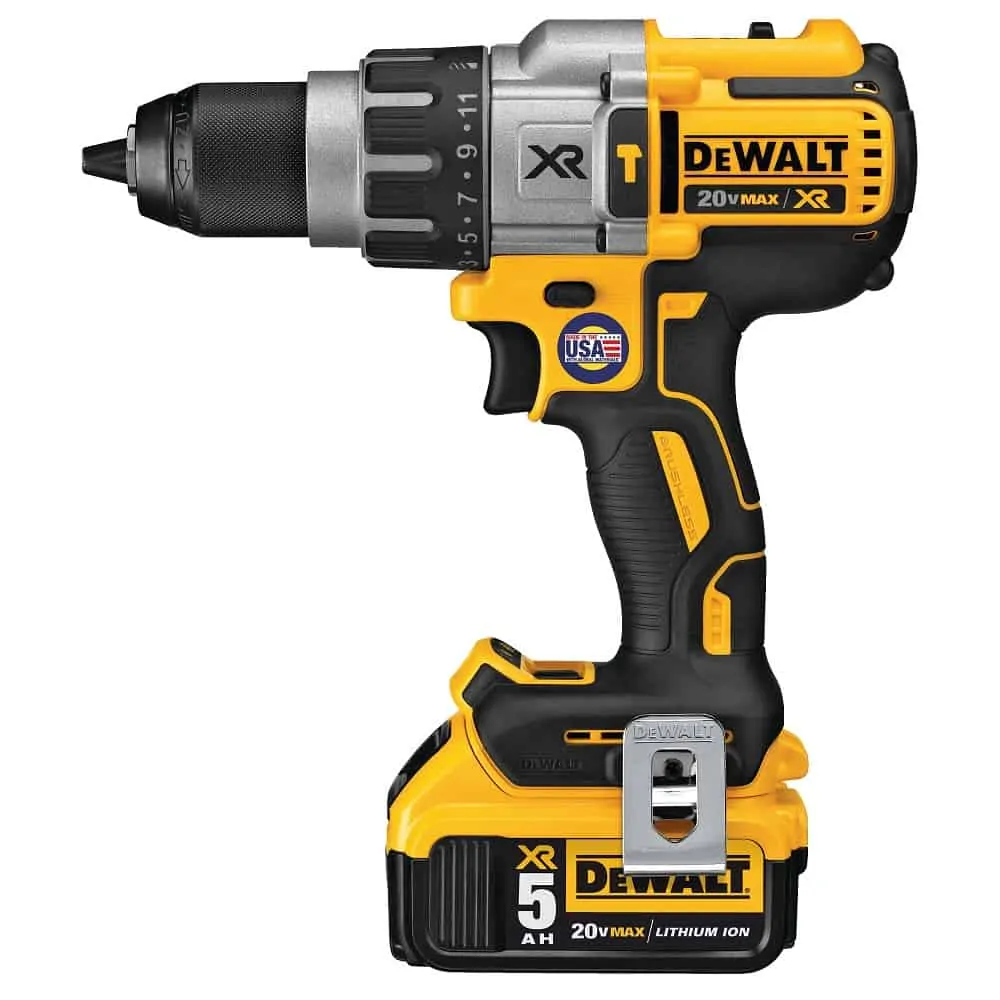
A drill is a handheld power tool that uses a rotating tip or reciprocating hammer to make holes. Their versatility stems from their interchangeable drill bits, which are available in various shapes and sizes for different purposes.
Drills are the ultimate multi-purpose tool. However, although they can perform various tasks well, they won’t always excel in the way that a specialist tool such as a screw gun will. Drills make a decent substitute for a screw gun, but an actual screw gun will be faster, more precise, and provide a smoother finish when fixing drywall.
If you hire a professional contractor to install drywall, they will almost always use a screw gun rather than a drill.
There are two mains types of drills:
Drill/Drivers
These drills are used for drilling holes and driving screws into wood, plastic, and metal. They are versatile tools intended for lighter workloads and aren’t suitable for heavy-duty work.
Hammer Drill
Hammer drills can do everything a drill does, but they also have a hammer setting designed to rapidly push the drill bit in and out for drilling into concrete, rocks, stone, and masonry.
How Does a Drill work?
You first need to insert a drill bit into the chuck and ensure it is secure. When you press the trigger, you will engage the motor. The motor spins the drill bit, which creates a hole or, if you use the right bit, turns a screw.
Choose The Right Drill
What is a Drill Used For?
Drills are versatile tools. A strong enough drill will make holes in almost every material, including metal, rock, concrete, and wood. You can also use a drill as a driver to insert screws.
You can convert your drill into a screw gun by attaching a dimpler to the chuck. This prevents a screw from going too deep into your drywall. However, unlike a screw gun, you will need to judge when to stop the motor before you damage the drywall.
Another major disadvantage of using a drill to fit drywall is that every screw must be placed on the drill bit manually. This slows the process significantly, compared to the automatic loading of a screw gun.
Pros
- Versatile
- Powerful
- Multi-use tool
- Bits for flathead and Phillips screws
- Better value for money than screw guns
Cons
- Screws loaded manually
- Takes longer to fit drywall
- Jack-of-all-trades tool
- Less precise than a screw gun
FAQs
Picking the Right Tool
Screw guns are valuable tools for professional contractors, allowing them to insert hundreds or even thousands of screws very quickly and with minimal effort. This makes them the perfect choice for fitting drywall, especially as they can insert screws to a specific depth.
However, if you only need to insert screws occasionally and you aren’t worried about how long it will take, a screw gun is an unnecessary expense. You will be better off saving your money by buying a dimpler for your power drill if you have one. Even if you don’t already have a drill, it will provide far better value for money in the long run.
Like many decisions when buying tools, screw gun vs drill largely comes down to whether you are a professional and need specialist tools or a DIYer who wants to get the most out of each one you buy.
